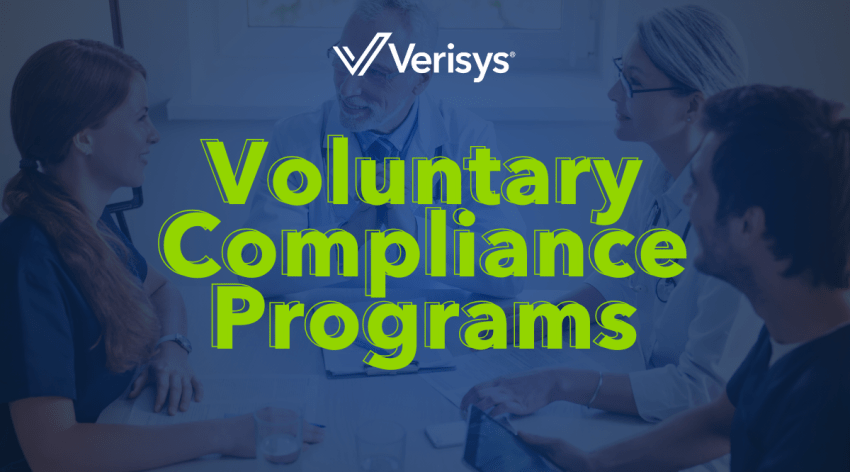– The best resource for monthly healthcare regulatory compliance updates. Compliance Updates: April 2024 Overlook: Licensure Compacts Other Legislation Board Updates Interstate Medical...


Compliance with the Office of Inspector General (OIG) is not just best practice but a legal requirements not just best practice but a legal requirement. Having a partner with a Gold Standard monitoring data set is the number one way to stay compliant with OIG and all other regulatory agencies. FACIS by Verisys is your one stop shop to ensure you have complete compliance and insight into your organization.
The Office of Inspector General (OIG) encouraged voluntary compliance programs, known as Compliance Program Guidance documents (CPGs), are initiatives developed by the OIG to promote adherence to relevant federal laws and regulations within the healthcare industry. These programs are directed at various segments of the healthcare industry, such as hospitals, nursing homes, third-party billers, and durable medical equipment suppliers.
The General Compliance Program Guidance (GCPG) is a central part of these initiatives. It provides information about federal laws, compliance program infrastructure, OIG resources, and other key elements necessary for understanding healthcare compliance. Importantly, the GCPG is voluntary and not legally binding on any individual or entity, but it discusses general compliance risks and offers guidance on compliance programs.
Since 1998, these programs actively encourage healthcare organizations to develop and use internal controls for monitoring adherence to applicable statutes, regulations, and program requirements. The GCPG updates the descriptions of the seven elements of an effective compliance program, which healthcare entities depend on. Updated for the first time in 15 years in November 2023, this guidance does not establish new legal standards but reinforces existing ones. Healthcare and life sciences companies find it a valuable tool for advancing their compliance efforts.
Overall, OIG’s voluntary compliance programs are a crucial part of maintaining ethical and legal standards in the healthcare industry, providing guidelines and resources to help organizations comply with the necessary regulations and laws.
Physician Practices: Compliance programs for physicians aim to prevent fraudulent activities and ensure the submission of true and accurate claims. The Office of Inspector General (OIG) recommends a framework consisting of seven key components, enabling physician practices to establish their own voluntary compliance programs. These components aim to lay a solid foundation for compliance within a physician’s practice.
Hospitals, Nursing Homes, and Other Healthcare Entities: The Office of Inspector General (OIG) has developed Compliance Program Guidance documents (CPGs) for various segments of the healthcare industry, including hospitals, nursing homes, third-party billers, and durable medical equipment suppliers. These CPGs aim to encourage the development and use of internal controls to ensure adherence to applicable statutes, regulations, and program requirements.
Right-Sized Compliance Plans: The concept of “right-sized” compliance plans is promoted by the OIG. These plans are tailored to prevent accidental and intentional violations of laws, detect violations if they occur, and correct future noncompliance. The term “right-sized” refers to applying regulations that are appropriate and practical for a specific healthcare practice. This approach allows for the customization of compliance plans to suit the unique needs and resources of different healthcare providers.
Specific Examples from Healthcare Entities: One specific example of a healthcare compliance program is the MD Anderson’s Code of Conduct. This program for covered entities outlines a comprehensive Hospital Compliance Plan. It details how employees should conduct themselves with integrity, following ten principles of conduct. The plan emphasizes strict adherence to maintaining confidentiality in patient information, among other standards.
These examples highlight the diverse ways in which healthcare providers can implement voluntary compliance programs, tailored to their specific needs and the nature of their services. The common goal across all these programs is to ensure adherence to legal and ethical standards, prevent fraudulent activities, and promote integrity and transparency in healthcare practices.